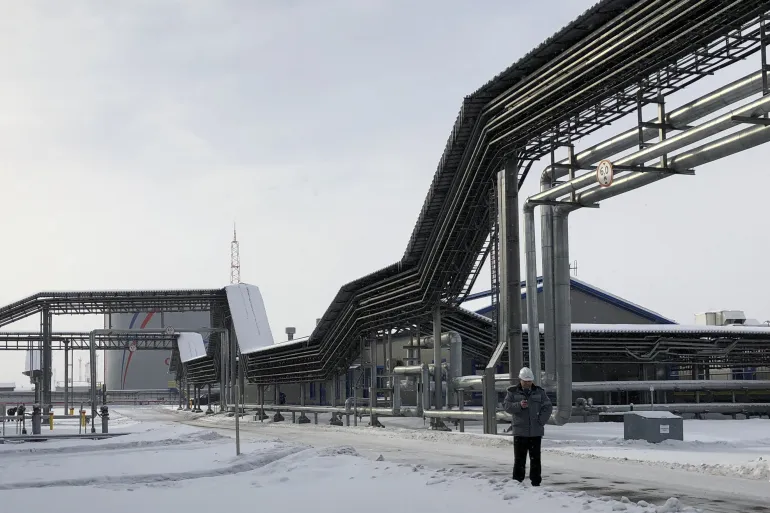The European Union has approved its 18th sanctions package against Russia, intensifying pressure on Moscow’s oil and energy sectors in response to its ongoing war in Ukraine.
The latest measures introduce a dynamic price cap on Russian crude—set to be 15% below the average market rate—replacing the previous $60-per-barrel cap imposed by the G7 in December 2022, which proved largely ineffective.
Russia Responds: No Change in Strategy, Says Medvedev
In reaction to the 18th sanctions package, Dmitry Medvedev, Russia’s former president and current Deputy Chair of the Security Council, said the new measures would not alter Moscow’s stance on the Ukraine conflict.
In a post on Telegram, he emphasized that previous sanctions failed to impact Russia’s strategy, and this round would be no different.
Medvedev also warned of escalating Russian strikes on Ukrainian territory, including Kyiv, stating that military actions would intensify in the coming days.
Kremlin Downplays EU Oil Cap
Kremlin spokesperson Dmitry Peskov dismissed the new price cap—currently estimated at $47.60 per barrel based on market rates—as ineffective and illegal.
Peskov asserted that Russia has developed a level of resilience to sanctions and has adapted to the restrictions over time.
On the same day, Brent crude futures slightly rose to around $70 per barrel, further highlighting the gap between global market prices and the EU-imposed 18th sanctions package.

EU Declares Sanctions as Among the Strongest Yet
EU foreign policy chief Kaja Kallas hailed the sanctions package as one of the toughest to date.
In a statement on X, she said, “We will continue to raise the costs for Russia—ending aggression is the only way forward for Moscow.”
Key features of the new package include:
- 105 Russian “shadow fleet” vessels added to the sanctions list.
- Sanctions on unnamed Chinese banks accused of helping Russia evade sanctions.
- Enhanced restrictions targeting Russian banking, energy, and defense sectors.
**The “shadow fleet” refers to a network of ships Russia uses to secretly transport oil and circumvent previous sanctions.
EU and UK Join Forces on Oil Price Cap
European Commission President Ursula von der Leyen welcomed the sanctions, stating they “strike at the heart of Russia’s war machine,” with direct targets in the financial, energy, and military-industrial sectors.
The UK also announced it would adopt the adjustable oil price cap.
British Finance Minister Rachel Reeves, speaking at the G20 summit in South Africa, emphasized that cutting off Russia’s oil revenue stream is critical to undermining its war financing capabilities.
Market Reaction on EU’s 18th Sanctions Package and Effectiveness Doubts
According to Reuters, energy market traders remain skeptical that the sanctions will significantly hinder Russian oil exports.
Despite the cap, Russia has managed to sell most of its oil above the current limit, due in part to the lack of enforcement mechanisms.
Ukraine Welcomes Timely Decision
Ukrainian President Volodymyr Zelensky praised the EU’s 18th Sanctions Package, calling it “essential and timely” in light of Russia’s intensified aerial assaults on Ukrainian cities and villages.
He also called for further punitive measures to isolate Moscow economically and politically.
Zelensky posted on X, “This decision is crucial and timely, especially as Russia escalates its brutality against our people.”
Ukrainian Deputy Foreign Minister Andrii Sybiha echoed the sentiment, describing the EU’s 18th Sanctions Package as “one of the strongest packages yet” and stressing that cutting off Russia’s oil income is vital to halting its aggression.








